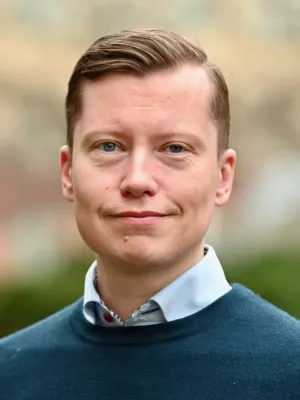
Nils Gustafsson
elite networks, political communication & social media

Online lurking and offline action: young people, social media, and (non-)participation
Författare
Summary, in English
This paper uses focus group interviews to uncover mechanisms underpinning (non-)participation in relation to social media use and social incentives. It is based on eight focus group interviews with 59 Swedish participants aged 16-25. The design includes four focus groups comprised by high school students; two groups with university students, one group with students in a post-secondary non-university education programme, and one group with people enrolled in a labour market initiative. The choice of method allows for young people to discuss things with peers in a safe setting, teasing out issues that would perhaps not come out in a one-on-one meeting with an adult researcher, or in a survey with pre-formulated questions. In contrast to digital methods, it also allows for the collection of information on cross-platform behaviour and lurking, as well as information on offline conversations. The focus group discussions evolve around the political content in social media, news, peer pressure, and (non-)participation). One focal point is news, discussions and (non-)participation in relation to the 2015 European refugee crisis, which saw a high level of mobilisation as well as news coverage and public discussion among the Swedish population.
The interviews are transcribed and analysed using micro-interlocutor analysis (Onwuegbuzie et al, 2009), thereby placing a higher focus on the dynamic aspects of the focus group interview than is usually done.
A preliminary analysis of the material reveals a complex situation regarding the interaction
between social media use, peer pressure, offline discussions and participation. Participants have in general a negative view of young people as uninformed, volatile, and highly impressionable. Political discussions in social media are generally avoided as they are deemed to be pointless and overly aggressive (cf. Gustafsson, 2012). Instead, political discussions are preferably held offline with close peers. News is to a very high degree consumed through social media (in complex interaction with the discussions framing topics and stories), and there is a large insecurity concerning what is fake news and what is proper journalism and trustable facts. Active participation is heavily connected to personal influences by close friends.
Avdelning/ar
- Institutionen för strategisk kommunikation
Publiceringsår
2017
Språk
Engelska
Fulltext
- Available as PDF - 216 kB
- Download statistics
Dokumenttyp
Konferensbidrag
Ämne
- Political Science (excluding Public Administration Studies and Globalization Studies)
- Communication Studies
Nyckelord
- political participation
- political communication
- social network sites
- youth studies
Conference name
NordMedia 2017: 23rd Nordic Conference on Media and Communication Research
Conference date
2017-08-17 - 2017-08-19
Conference place
Tampere, Finland
Status
Unpublished
Projekt
- Political participation among young people – from party democrats to social media activists?

